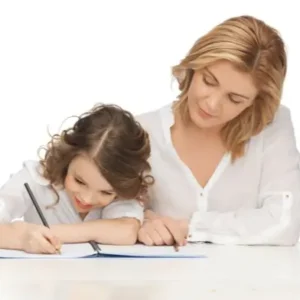Online Key Stage 3 Courses
Key Stage 3 Courses
The solid foundation for success in future exams.
Key stage 3, often abbreviated to Ks3, covers the first 3 years of secondary education in the UK. Typically studied by 11-14 year olds in school, Ks3 is not examined.
Without the distractions of a busy classroom or the pressure of a looming exam, Oxford Home Schooling students can study the basics of these subjects but they also have the freedom to go into more depth and expand their interests without the worry of sticking to a set exam syllabus.
Our Ks3 courses cover a wide range of topics and general education and they provide excellent preparation for GCSE and IGCSE courses to follow.
How are the courses structured?
The Oxford Home Schooling Key Stage 3 courses are normally divided into three separate one-year courses.
These match typical school-based programmes for Years 7, 8 and 9. It is not necessary for students to be in the “appropriate” school year to tackle each of these courses because different students proceed at very different speeds.
By the end of the Year 9 course, students are in a position to make a successful start on the equivalent GCSE or IGCSE course, perhaps at age 14.
Our courses have been designed to cover the same material as the National Curriculum.
How you use our courses is very flexible and up to you. Most parents feel that they want their child to study the entirety of the course and do not wish to miss any aspects out. Others choose to deliberately miss some sections, for example, our Science course touches on the Darwinian Theory of Evolution.
As a parent you are able to decide yourself whether you would wish your child to cover a topic or not. We will be as flexible as you are.
-

English Keystage 3 Year 7
£14.99 / month -

English Key Stage 3 Year 8
£14.99 / month -

English Key Stage 3 Year 9
£14.99 / month -

Geography Key Stage 3 Year 7
£14.99 / month -

Geography Keystage 3 Year 8
£14.99 / month -

Geography Key Stage 3 Year 9
£14.99 / month and a £9.99 sign-up fee -

History Key Stage 3 Year 7
£14.99 / month and a £9.99 sign-up fee -

History Key Stage 3 Year 8
£14.99 / month and a £9.99 sign-up fee -

History Key Stage 3 Year 9
£14.99 / month and a £9.99 sign-up fee -

PSHE Key Stage 3 Year 7
£14.99 / month and a £9.99 sign-up fee -

PSHE Key Stage 3 Year 8
£14.99 / month -

PSHE Key Stage 3 Year 9
£14.99 / month
FAQs
Why should I choose Oxford Home Schooling for my child's Key Stage 3 study?
- Oxford Home Schooling is a long-established educational company that prides itself on
- treating every student as an individual
- excellent customer service
- comprehensive, quality courses.
- We’re rated ‘Excellent’ on Trustpilot by students who have studied with us.
- We provide online and printed resources so you can study your way – other providers do not give you that choice.
- We make it easy for you to home-educate your children with our flexible schedule, tutor support, and subscription-based payment plan.
- Every year we help hundreds of children who have left mainstream education obtain the qualifications they need to progress and achieve their goals. A firm foundation at Key Stage 3 is vital.
Are there any exams for Key Stage 3 Courses?
No.
KS3 courses are the building blocks designed to prepare your child to begin studying for GCSE, which is formally examined.
With no exams to worry about, your child can take as much or as little time as they need to assimilate the basic principles in KS3. This can be a time in school when gifted children become bored and troublesome if they find it all too slow and easy while others may be put off learning if they have not had time to grasp the first principles of a subject. Oxford Home Schooling has the flexibility to cope with both of these extremes and every child in between.
Is there an age limit for KS3?
There isn’t a specific age requirement to start a Key Stage 3 course but we strongly recommend that the pupil is a minimum of 10 and preferably 11 when they start the GCSE course and also that they are academically capable of starting the course. If the student is not 10 before they start, we may have difficulty allocating you a tutor. There is no upper age-limit.
When can I start?
You may take out a subscription and start any time of the year you like. The earlier the better! The important thing to think about is the context of secondary education as a whole and the objectives you have as a family.
Once you have taken out a subscription, you will get access to your course online immediately and (optionally) your printed course materials will arrive a few days later.
Is it necessary to start with a Year 7 course?
No. Students may jump in at Year 8 or Year 9 instead. If a student has already completed Year 7 (or Year 8) within a school environment, they find they were repeating skills and knowledge already acquired. But any course makes assumptions about prior knowledge and our Year 8 courses do assume the prior knowledge that comes from a Year 7 course. Our Year 9 course, similarly, assumes knowledge from both Year 7 and Year 8. So it may take a little while to adapt.
Will completion of the KS3 course (to Year 9) put me in a good position to start my GCSE studies?
This is one of the main objectives of our KS3 courses. Some of our GCSE and International GCSE courses may go back briefly to first principles for the benefit of those who are new to the subject but a student’s chances of success are hugely enhanced if they have achieved a firm grounding at KS3 first.
Are any additional textbooks or external resources required?
The courses are largely self-sufficient so no additional textbooks should be required. The exception, perhaps, is English, where students will need to acquire certain novels, plays and poetry books. Access to the internet is advantageous at all levels of education, including KS3. Our science courses assume access to various very basic items of equipment for home-based experiments, usually under parental supervision.